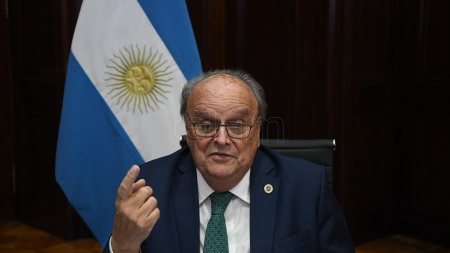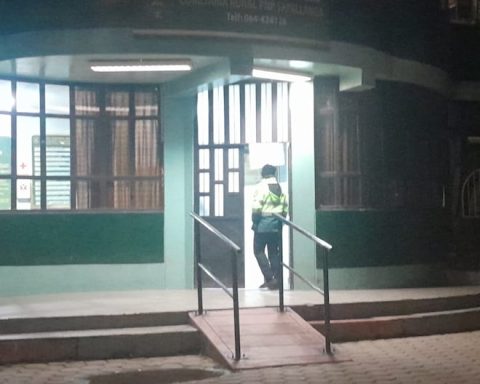The investment rate in the country “is the highest in the last ten years” at 22% of the Gross Domestic Product (GDP), the Secretary of Industry and Productive Development, José Ignacio de Mendiguren, said this Saturday at the same time who stressed that the government plan is “to stabilize the economy without leading it to a recession and a loss in purchasing power.”
“Today investment in Argentina is at 22% of the Product and it is the highest in the last ten years; this means that it is a lie that it is in a terminal crisis,” de Mendiguren stressed in dialogue with AM 750.
Similarly, he indicated that “today, of the 24 provinces, 22 have almost full employment” and the key will be to “maintain this level of activity and investment.”
According to the official, stabilizing the macroeconomy and maintaining wages are not mutually exclusive.
“The political decision of this government, unlike all other stabilization plans, is to stabilize while preserving the purchasing power of wages,” he asserted.
In this sense, he questioned the administration of Mauricio Macri: “With the opposition ruling, without war or pandemic, after four years we fell three.”
#TaxRelief because salary is an engine of the economy. https://t.co/SihgBIB1KS
– Vasco de Mendiguren (@dmvasco) December 8, 2022
On the contrary, “for the first time in many years – he stressed – we want to get out of the crisis from above, growing and not adjusting; because every time the economy adjusts, activity, employment and wages fall, and therefore the collection and, therefore, fiscal equilibrium is never achieved”.
However, De Mendiguren acknowledged that “Today’s problem is that money is not enough.”
According to the secretary, the Government, in order to recover the salary, considers as a “very important element within the stabilization plan” the call to the Salary Council and paritytogether with a “very strong fight against prices”.
Regarding the latter, the official pointed out that “there is a lot of resistance from people who have done very well.”
“When you look at the numbers and balance sheets of the companies, there were important gains, which means that what is failing is the distribution,” he pointed out.
“We want to get out of the crisis from above, growing and not adjusting; because every time the economy is adjusted, activity, employment and wages fall, and therefore collection falls and, therefore, fiscal balance is never achieved”Jose Ignacio de Mendiguren
In addition to reducing inflation, another priority – he indicated – is to avoid a devaluation.
“Everyone knows that a sudden devaluation with the current level of inflation would be very serious,” he said.
In this framework, he defended the reserve accumulation through initiatives such as the Export Increase Program (PIE) or “soybean dollar”, through its two editions.
“The only sector that could bring in US$ 5,000 million was sought since no other can and it is the one that has the least impact on the domestic market because only 8% is consumed internally,” de Mendiguren explained.
“Nobody wants five types of changes and a gap that lends itself to all kinds of stoked. The issue is how to get out of this stage”Jose Ignacio de Mendiguren
In this context, he recalled that once the amount collected is determined, a part of it will be redirected to the Anses and another to the regional economies.
“Nobody wants five types of changes and a gap that lends itself to all kinds of fanfare. The issue is how to get out of this stage,” he added.
Finally, he pointed out that “today Argentina is at a pivotal moment” as it finds itself “on the brink of making the definitive leap to development with lithium, gas, oil, mining and agribusiness.”
“If the national field is united, we are going to be owners of those resources; if it is divided, we are going to be tenants”he concluded.


















